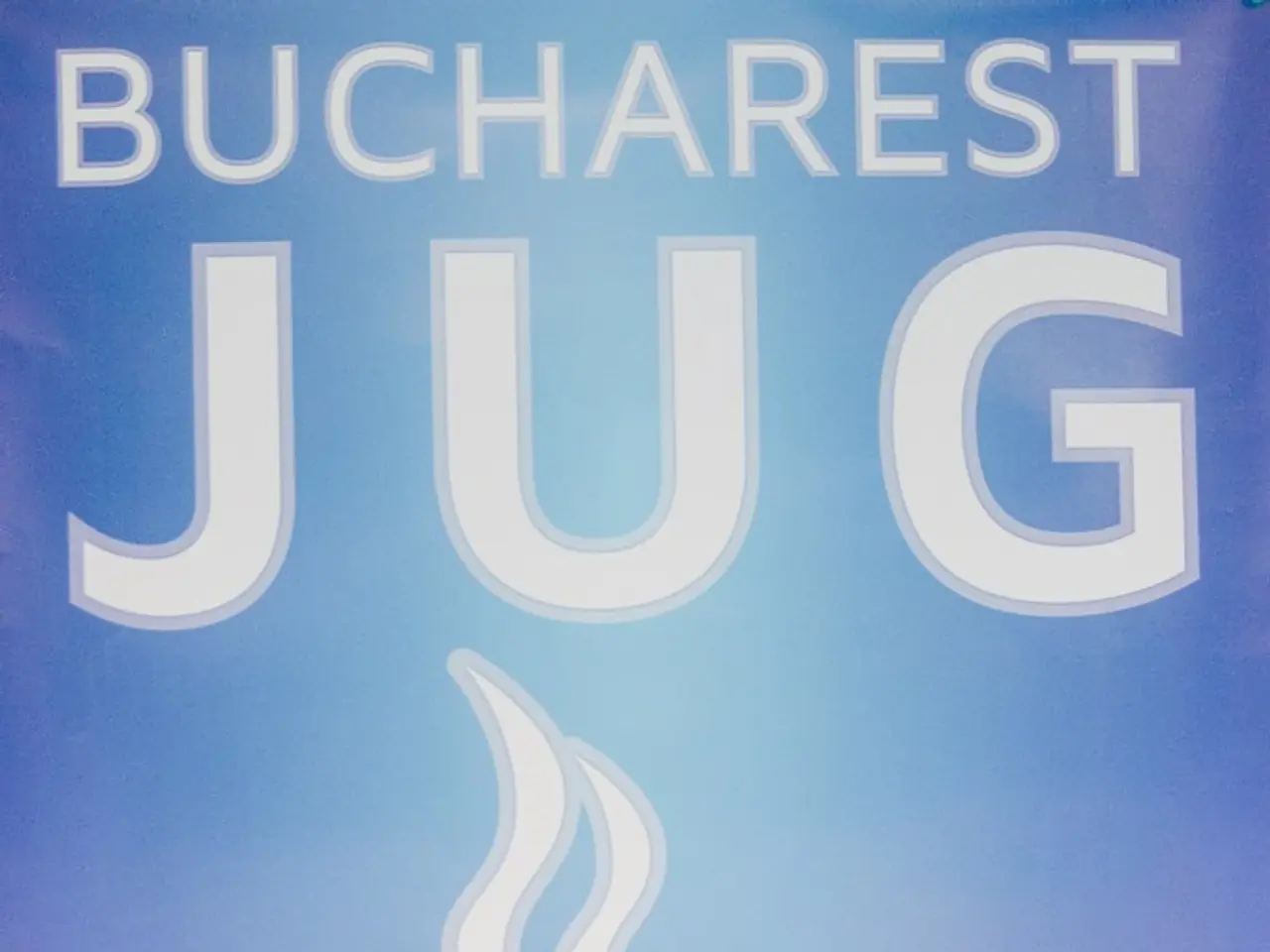Purchasing Dividend Titans at Significant Discounts
In the fast-paced world of high-speed trading, Warren Buffet's wisdom is still as relevant as ever: wealth is often transferred from the impatient to the patient. And that's exactly what dividend investors, those with the guts to buy quality stocks at below-average prices and hold them for the long haul, are capitalizing on. Here are two top picks that are currently traded at far below their normal valuations, paying well-covered dividends, and boasting significant growth potential should market sentiment shift. Let's dive into what makes these income and value investments so attractive!
#1: Bristol Myers Squibb (BMY)
BMY is a pharmaceutical titan, leading the charge in oncology, hematology, cardiovascular, immunology, and neuroscience. The company's portfolio is stacked with blockbuster drugs like Opdivo (oncology), Eliquis (cardiovascular), Camzyos (cardiomyopathy), and Cobenfy (schizophrenia), offsetting the decline in legacy drugs like Revlimid faced with generic competition.
What makes BMY so damn cheap? It's currently trading with a forward PE of just 6.9x. To top it off, it dishes out a 5.3% dividend yield – well-covered by a 33% payout ratio and backed by a 5-year Compound Annual Growth Rate (CAGR) of 7.2% and 17 consecutive years of growth. At the current price of $46.84, BMY is trading well below its 52-week high of $63.
BMY's Q1 2025 sales declined by 4% YoY on an FX-neutral basis, primarily due to generic pressures on legacy drugs. However, the growth portfolio roared ahead with a robust 18% YoY growth in sales, driven by Opdivo, whose sales grew by an impressive 12%. The debut of Opdivo Qvantig, a subcutaneous formulation, achieved $9 million in initial sales.
Strong performers in the quarter included Reblozyl, which expanded international market penetration, particularly as a first-line treatment for MDS-associated anemia. Breyanzi and Camzyos saw 2-3x sales growth, with Camzyos receiving a favorable FDA label update for reduced echo-monitoring frequency, simplifying patient management. The cardiovascular segment saw rapid growth in Camzyos prescriptions and sales, helping to offset the slow decline in Eliquis.
Despite the overall decline in sales during Q1, the market may be overlooking the strong growth portfolio. Management recently raised full-year EPS guidance from $6.70 to $6.85 at the midpoint of the range. BMY's list of exciting growth prospects includes the expansion of Opdivo and Yervoy indications, as well as Cobenfy's promising early adoption for schizophrenia and potential treatments for Alzheimer's and bipolar disorders.
BMY boasts a strong balance sheet, boasting an 'A' credit rating from S&P and a safe net debt-to-TTM EBITDA ratio of 2.0x. At the current price of $46.84, BMY obviously sits in bargain territory with a forward PE ratio of just 6.9. This sits well below the company's normal PE of 17.7. BMY is also cheaper than beaten-down peer Pfizer's (PFE) 8.0x forward PE and less than half of AbbVie's (ABBV) 15.2x forward PE.
Investors are well-compensated by BMY's 5.3% yield at the current price. Momentum around the growth portfolio and neurodegenerative diseases, particularly with Cobenfy, could fuel positive surprises – making the current valuation too cheap for BMY's growth prospects.
#2: Schlumberger (SLB)
SLB is an oilfield services behemoth that provides technology, digital solutions, and integrated project management for global energy companies. Its customers include heavy hitters like Chevron (CVX), TotalEnergies (TTE), Shell Plc (SHEL), Exxon Mobil (XOM), and Occidental Petroleum (OXY).
SLB's fortunes are closely tied to oil prices. While the stock has followed the downturn in the WTI Crude Oil spot price lately, it hasn't seen the same excitement as oil prices surged in recent weeks. As it stands, SLB's share price currently sits at $35.85 while WTI oil price reached a high of $72.53.
SLB reported soft Q1 2025 earnings with a 3% YoY revenue decline to $8.5 billion. North America showcased resilience with 8% revenue growth, thanks to strong offshore and digital solutions. International revenue dipped by 5% due to reduced drilling activity in Mexico, Saudi Arabia, and Russia.
The good news? Adjusted EBITDA improved by 18 basis points YoY to 23.8%, thanks to disciplined cost management and favorable price/mix in Production Systems. This included strong demand for surface production systems, completions, artificial lift, and subsea production systems. SLB also saw 17% revenue growth in its digital services division, driven by SLB's upstream operators seeking efficiency and performance gains.
Looking ahead, SLB is primed for growth with the pending ChampionX acquisition, enabling it to offer more offshore and digital services. Plus, there's potential for a rebound in the Middle East as OPEC increases production to regain market share.
Management is diversifying the revenue stream with a recent significant contract award for data center manufacturing services. SLB also has a pipeline of opportunities in carbon capture and geothermal solutions. This is backed by healthy returns on investments. As shown below, SLB is currently generating a double-digit Return on Invested Capital (ROIC) of 12%, which sits 300 bps higher than 3 years ago.
Importantly, SLB carries a strong balance sheet with an 'A' credit rating from S&P. This is supported by a low net debt-to-TTM EBITDA ratio of 1.24x and $3.9 billion in cash and short-term investments on hand. This strengthens SLB's capital investments and supports the 3.2% dividend yield, which is well-covered by a 33% payout ratio. Beyond dividends, management is also returning robust cash to shareholders through share buybacks. SLB has repurchased a significant 4.2% of its outstanding shares over the past 12 months.
At the current price of $35.85, SLB carries a forward PE of just 11.3. This sits well below its historical PE of 24.2. SLB also seems cheap on an FCF yield basis. As shown below, FCF yield per share currently sits at a historical high outside of the 2020-2021 timeframe.
SLB appears to be a steal at the current price considering the solid starting yield, robust share buybacks, rebound in oil prices, and new business opportunities. Analysts expect 7-11% annual EPS growth over the next 3 years – a reasonable estimate considering the aforementioned catalysts and any reversion to the mean valuation, which could result in potentially high double-digit total returns for investors.
Remember, both BMY and SLB come with their risks. BMY's pipeline execution depends on successful clinical trials, and funding cuts at the FDA could delay approvals and impact margins. Regulatory and drug development risks can affect future revenue growth. Meanwhile, SLB’s sensitivity to oil prices, demand from the energy industry, and potential returns on new businesses like data center development may not meet the returns from energy investments. But with solid balance sheets, income-generating dividends, and growth potential, these companies are compelling value plays for patient investors seeking both income and upside. Invest wisely!
Sources:[1] Seeking Alpha, “Bristol Myers Squibb Company Profile,” https://seekingalpha.com/symbol/BMY/profile/earnings[2] Business Insider, “Bristol Myers Squibb raises its earnings forecast as key cancer drug Opdivo CRUSHES expectations,” https://www.businessinsider.com/bristol-myers-squibb-raises-earnings-forecast-opdivo-cancer-drug-2021-4[4] Yahoo Finance, “Bristol-Myers Squibb Company Profile,” https://finance.yahoo.com/quote/bmx/profile[5] MarketWatch, “Bristol Myers Squibb shows earnings and revenue growth as investors eye Cynata Therapeutics,” https://www.marketwatch.com/story/bristol-myers-squibb-shows-earnings-and-revenue-growth-as-investors-eye-cynata-therapeutics-11619514721
- Warren Buffet's advice about patience in wealth accumulation aligns well with the strategy of dividend investors, such as those buying Bristol Myers Squibb (BMY) stocks at discounted prices and holding them for the long term to capitalize on their well-covered dividends and growth potential.
- Technology and digital solutions are integral to Schlumberger (SLB), an oilfield services giant that provides its services to leading global energy companies, offering a digital services division with a revenue growth of 17%. This aspect of the business could attract investors seeking efficiency and performance gains, justifying the patience needed for long-term investment.
- The healthcare sector's growth, financed through wise investments, is paramount for the financial well-being of businesses like Bristol Myers Squibb (BMY). Its focus on research and development, as well as its portfolio of blockbuster drugs, ensures a steadily flowing income and value investment that rewards patient investors.








